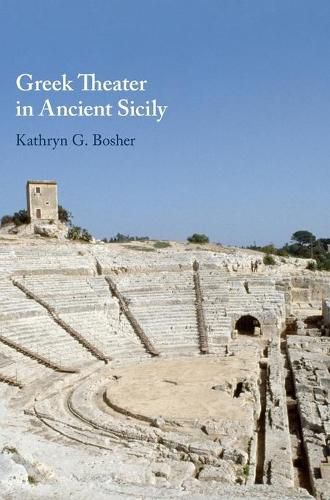Readings Newsletter
Become a Readings Member to make your shopping experience even easier.
Sign in or sign up for free!
You’re not far away from qualifying for FREE standard shipping within Australia
You’ve qualified for FREE standard shipping within Australia
The cart is loading…






Studies of ancient theater have traditionally taken Athens as their creative center. In this book, however, the lens is widened to examine the origins and development of ancient drama, and particularly comedy, within a Sicilian and southern Italian context. Each chapter explores a different category of theatrical evidence, from the literary (fragments of Epicharmus and cult traditions) to the artistic (phylax vases) and the archaeological (theater buildings). Kathryn G. Bosher argues that, unlike in classical Athens, the golden days of theatrical production on Sicily coincided with the rule of tyrants, rather than with democratic interludes. Moreover, this was not accidental, but plays and the theater were an integral part of the tyrants’ propaganda system. The volume will appeal widely to classicists and to theater historians.
$9.00 standard shipping within Australia
FREE standard shipping within Australia for orders over $100.00
Express & International shipping calculated at checkout
Studies of ancient theater have traditionally taken Athens as their creative center. In this book, however, the lens is widened to examine the origins and development of ancient drama, and particularly comedy, within a Sicilian and southern Italian context. Each chapter explores a different category of theatrical evidence, from the literary (fragments of Epicharmus and cult traditions) to the artistic (phylax vases) and the archaeological (theater buildings). Kathryn G. Bosher argues that, unlike in classical Athens, the golden days of theatrical production on Sicily coincided with the rule of tyrants, rather than with democratic interludes. Moreover, this was not accidental, but plays and the theater were an integral part of the tyrants’ propaganda system. The volume will appeal widely to classicists and to theater historians.